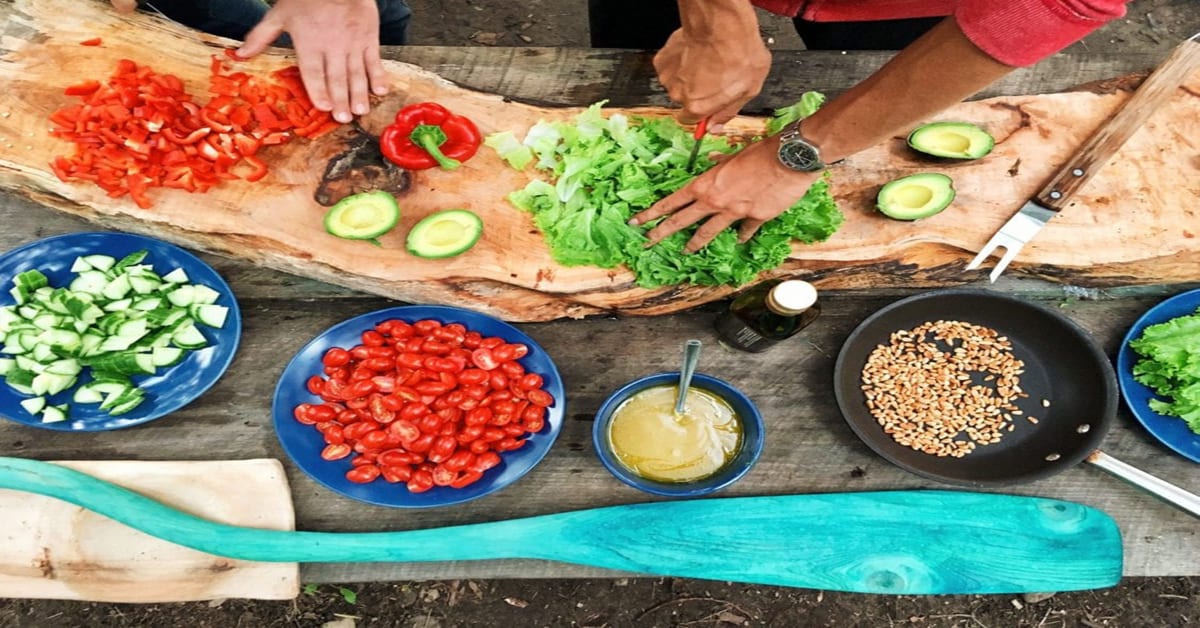
Too often vegetarianism is often mistaken as veganism. In truth, veganism is just one type of of a vegetarian lifestyle. One is a vegetarian when he or she refuses meat, poultry, game, fish, shellfish, and other animal-related foods.
Here are the most common diets in vegetarianism:
- They avoid meat but take dairy and eggs in their meals – Lacto-ovo vegetarians
- They include dairy in their plant-based diet. – Lacto vegetarians:
- They have eggs in their plant-based meals. – Ovo vegetarians:
- The extreme, purely plant-based diet – Vegans
Given that meat production is a high contributor to carbon emissions and degradation of forests, it is slowly being a rallying cry to go meatless. This makes vegetarianism one of the best shifts for a sustainable lifestyle. But is it feasible for everyone to go vegetarian? I asked Kerry McLean Blazek, a Christian lifestyle blogger, about how she is going vegetarian in her life. Plus get tips on other sustainable habits you can adapt!
1. How did you start practicing vegetarianism?
K: I have never really liked meat, even growing up. Once I was an adult, the thought of where the meat came from gave me the push to become a vegetarian.
2. What does vegetarianism mean to you?
K: Healthy choices, positive environmental impact
3. How did being vegetarian change or affect your life?
K: Not much personally has changed. I believe the biggest change is from people when they find out I am a vegetarian.
4. Is your living situation conducive to your plant-based diet?
K: Yes, we purchase fresh plants and vegetables from our local market.
K: My mom thinks I’m weird but my dad gets it. He remembers the battles about eating meat growing up. Some of my friends think I’m weird; my husband is super supportive.
6. What efforts do you do to support this lifestyle?
K: We don’t have a garden here at the house. However, have friends in the neighborhood who do and they share kindly. We do visit the farmers market when in season. Otherwise, I just purchase from the grocery store.
7. When travelling, what do you do to ensure that you eat in a vegetarian way?
K: I am the pain in the bottom customer at restaurants. I ask a ton of questions and tend to ask for personal dishes. A lot of time, I order salads and ask for the meat on a side plate for other family members. I have found, over the years, there are more and more restaurants having vegetarian options on their menus.
8. In your experience, what should restaurants and other establishments do to accommodate people who prefer to eat less or no meat?
K: There are so many options out there, whether soy or meatless options or mushrooms. I don’t believe it would cost more for the additional options.
K: I cook for both meat dishes and non meat dishes. My kids and husband eat meat and so at every meal there are both options. I use a lot of mushrooms in dishes or meatless options. We have pasta night at least once a week so everyone goes meatless those nights.
10. What are your tips on saving money on a vegetarian diet?
K: I purchase on sale and use items that are in season. With research, you can really save money.
11. Aside from going vegetarian, what other sustainable habits do you practice in your life?
K: We try to practice a lot but things have changed over the years. Our youngest was in cloth diapers, we made our own baby food, we recycle, we’ve composted.





Me and my husband, we both are choosing vegetarian options lately, we are trying to go full-time vegan. Mushroom is a very good source of protein, recently I have added this to my menu. Also, choosing biodegradable products, natural products is a big way to keep environment safe and healthy. Great post!
My biggest struggle is preparing so many dinners in one night because my family all eats differently. I really LOVE the idea of a meat free pasta night for all! I’m going to try that!
Good information! I’m personally not vegetarian, but I do choose way more plant based foods rather than meat nowadays. I love using zero waste products around the home though!
I’m a pain when I go out to eat as well but it’s so worth it. Your health is priceless!
Very cool article. I am an environmental food blogger myself, and I am getting 99 % of my “food inspiration” online. This is just one of many sources that I am using. 🙂